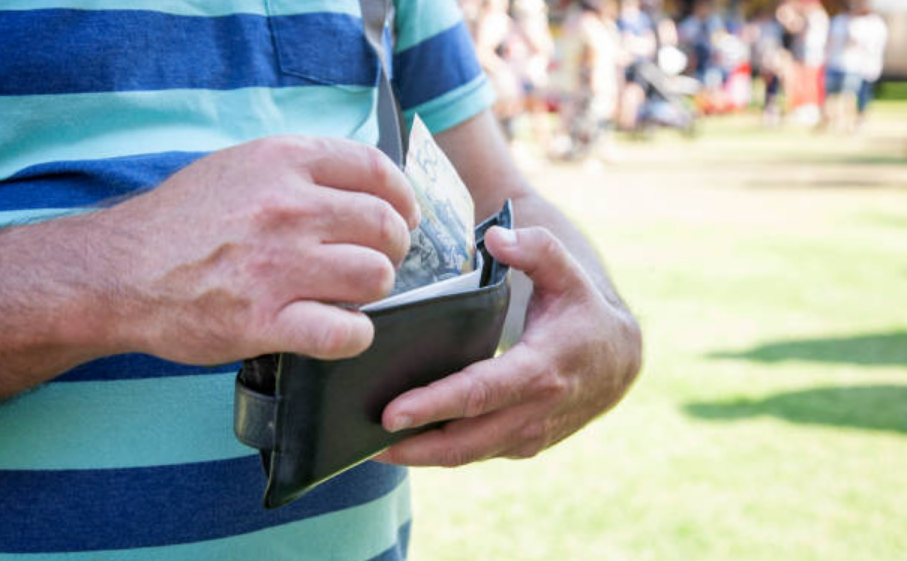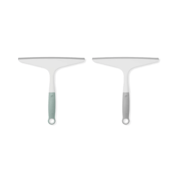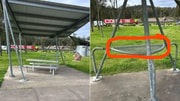
As the warmer weather arrives and you're already thinking about spring cleaning the house, there's another type of tidying that could put extra dollars back in your pocket just in time for Christmas planning.
The social media trend called 'No Spend September' has been gaining traction among younger Australians, but the concept—taking a month to focus on spending only on essentials—might be exactly what many of us over 60 have been doing naturally for years, just without the catchy hashtag.
What the numbers tell us about seniors and spending
Before we dive into whether this challenge makes sense for your situation, here's some encouraging news from the Australian Bureau of Statistics: self-funded retirees recorded the smallest annual cost of living rise at just 1.7 per cent in the latest figures, while age pensioners experienced a 1.0 per cent quarterly increase.
Compare that to the financial stress many younger Australians are facing, and research shows those aged 65 and older are actually experiencing fewer financial challenges than those aged 50-64, even though older adults are more likely to be on fixed incomes.
'Financial challenges are modifiable'
This doesn't mean we can't benefit from a focused month of mindful spending—quite the opposite. Many of us already have the skills and experience to make a 'No Spend September' incredibly effective.
The Australian approach to mindful spending
Lou Gibson, known as That Money Mum on Instagram, saved more than expected last year by eliminating coffees, streaming subscriptions, online purchases and takeaway food.
But research shows Baby Boomers are more strategic about their spending cuts—you're more likely to reduce travel expenses rather than daily takeaways (only 14.4 per cent of Baby Boomers cut takeaway compared to 34.2 per cent of Millennials).
This makes perfect sense. Rather than following someone else's list of what to cut, you can focus on areas that make the biggest impact for your lifestyle and budget.
Australian concessions and support available to you
Commonwealth Seniors Health Card holders may be eligible for various state-based cost-of-living payments
Energy concessions and bill assistance programs in every state
Pharmaceutical benefits and bulk-billing GP access
Council rate concessions for pensioners and seniors
Free or discounted public transport in many areas
Adapting the challenge for your situation
Financial behaviour expert Emma Edwards says challenges can help 'recalibrate and change your habits', particularly when you're breaking cycles of convenience spending or doom scrolling purchases.
For many seniors, September represents an ideal time for this kind of financial reset—spring energy for decluttering, enough time to plan for Christmas expenses, and a natural connection to activities you might already be doing.
If you're comfortable financially
Consider Lou Gibson's approach but adapted for your lifestyle. Instead of cutting takeaway coffee (you might make perfectly good coffee at home anyway), focus on:
- Pausing subscription renewals until you've assessed what you actually use
- Avoiding impulse purchases during spring shopping trips
- Timing major purchases to take advantage of end-of-financial-year sales
If money is already tight
Don't put additional pressure on yourself with restrictions. Ketvi Roopnarain, a financial literacy advocate, suggests alternative approaches like 'how can I bring in $300 over 30 days' through selling unused items, or 'get rid of 30 things in 30 days' to declutter while potentially earning.
Your spring financial health check
- Ring your energy provider about better deals (savings go straight to Christmas fund)
- Book that 30-minute superannuation consultation you've been putting off
- Review bank accounts for better interest rates on savings
- Assess streaming services and subscriptions for actual usage
- Plan Christmas gift budget based on potential savings
The Christmas connection
With Christmas only four months away, September timing is strategic. National Seniors Australia highlights that cost-of-living pressures continue to affect older Australians, making Christmas planning more important than ever.
Rather than scrambling in December, use September's mindful spending month to establish what you might realistically save for gifts, travel to see family, or special Christmas activities.
Example Scenario
- Margaret's practical approach: Margaret from Brisbane used September to audit her regular expenses. She discovered she was paying for three streaming services but only watched one, found a better electricity deal that saved $30 monthly, and started a Christmas gift envelope with the money saved. By December, she had $280 for presents without touching her pension or affecting her daily routine.
Making it social, not restrictive
One of the most appealing aspects of the online No Spend challenges is the community support. You don't need social media to create this—consider:
- Discussing the concept with friends at your coffee group
- Making it a gentle family challenge with adult children or grandchildren
- Using it as motivation to finally organise that cupboard while assessing what you actually need to buy
The 'loud budgeting' trend among younger generations is about being comfortable discussing financial boundaries and not feeling embarrassed about budget-conscious choices—something many of our generation have always understood.
When 'no spend' might not be right
Emma Edwards cautions against being 'overly restrictive' as it can backfire. If you're already carefully managing every dollar, adding pressure might not be helpful.
Consider these alternatives:
- A 'mindful spend' month where you pause before each purchase to consider if it aligns with your priorities
- A 'local spend' challenge supporting Australian businesses during your regular shopping
- An 'energy efficiency' month focusing on reducing utility bills rather than cutting discretionary spending
Getting started, your way
Research shows retirement budgets assume you own your home outright and are relatively healthy, but your situation might be different. The key is adapting any spending strategy to your circumstances.
Start with why you want to try this. Is it Christmas savings? Reducing financial stress? Creating space in the budget for a special purchase? Then identify what's truly discretionary in your spending and what brings you genuine value and satisfaction.
Remember the bigger picture
The real value of any spending challenge isn't deprivation—it's consciousness. Research shows that despite economic challenges, most adults over 50 report being satisfied with life, with satisfaction actually increasing with age (70 per cent of those over 70 report being 'completely' or 'very' satisfied compared to 53 per cent of those in their 40s and 50s).
Your September doesn't need to look like anyone else's. Whether you call it 'No Spend September', 'Spring Financial Cleaning', or simply 'getting organised for Christmas', the goal is feeling more in control of where your money goes.
Did you know?
Did you know? As financial expert Emma Edwards reminds us, 'If you do No Spend September and you slip up and spend $50 one day, you're still better off than if you hadn't tried at all.'
What This Means For You
The beauty of being in your 60s, 70s, or beyond is that you already know what works for your life. This September, you're not following a trend—you're applying decades of wisdom to create more financial breathing room exactly when and where you need it most.
What's your approach going to be this September? Share your own strategies and experiences in the comments below—your practical wisdom might be exactly what another reader needs to hear.
Original Article
https://www.abc.net.au/news/2025-08-31/no-spend-september-financial-challenge/105708412
Selected Living Cost Indexes, Australia, June 2025 | Australian Bureau of Statistics
Cited text: · Living costs for Age pensioner (+1.0 per cent) and Other government transfer recipient (+1.0 per cent) households and the Pensioner and Beneficiary LCI (PBLCI) (+1...
Excerpt: Age pensioners experienced 1 per cent quarterly rise in living costs, while self-funded retirees had smallest annual rise at 1.7 per cent
https://www.abs.gov.au/statistics/e...-living-cost-indexes-australia/latest-release
Selected Living Cost Indexes, Australia, June 2025 | Australian Bureau of Statistics
Cited text: Self-funded retiree households recorded the smallest annual rise (+1.7 per cent) of all the LCIs.
Excerpt: Age pensioners experienced 1 per cent quarterly rise in living costs, while self-funded retirees had smallest annual rise at 1.7 per cent
https://www.abs.gov.au/statistics/e...-living-cost-indexes-australia/latest-release
Aussies set for frugal 2025, with ¾ planning spending bans | Compare the Market
Cited text: “We’re more likely to see younger generations cut back on everyday expenses like takeaway meals and drinks, but Baby Boomers are more likely to say th...
Excerpt: Baby Boomers more likely to cut travel, while younger generations cut takeaway (34.2 per cent Millennials vs 14.4 per cent Boomers)
https://www.comparethemarket.com.au/news/how-australians-are-cutting-back-on-spending-in-2025/
Aussies set for frugal 2025, with ¾ planning spending bans | Compare the Market
Cited text: A huge 34.2 per cent of Millennials said they would spend less on takeaway meals in 2024, compared to just 14.4 per cent of Baby Boomers.
Excerpt: Baby Boomers more likely to cut travel, while younger generations cut takeaway (34.2 per cent Millennials vs 14.4 per cent Boomers)
https://www.comparethemarket.com.au/news/how-australians-are-cutting-back-on-spending-in-2025/
The viral money trends helping Gen Z save big in 2025—NAB News
Cited text: Loud Budgeting: This is all about unapologetically prioritising your own financial goals, setting smart boundaries on spending, and feeling comfortabl...
Excerpt: Gen Z most financially confident generation, using 'loud budgeting' and no-spend challenges
https://news.nab.com.au/news/the-viral-money-trends-helping-gen-z-save-big-in-2025/
The viral money trends helping Gen Z save big in 2025—NAB News
Cited text: By being able to remove the stigma around saying ‘no’ to events for financial reasons or asking friends to go to cheaper restaurants or bars, it means...
Excerpt: Gen Z most financially confident generation, using 'loud budgeting' and no-spend challenges
https://news.nab.com.au/news/the-viral-money-trends-helping-gen-z-save-big-in-2025/
The cost of living in retirement—GESB
Cited text: The full Age Pension, if you're eligible, can provide you with $29,874 per year for a single income ($1,144 per fortnight—maximum basic rate includi...
Excerpt: Age Pension provides $29,874 annually for singles, comfortable retirement needs $52,210 for singles, modest $33,386
https://www.gesb.wa.gov.au/members/retirement/how-retirement-works/cost-of-living-in-retirement
The cost of living in retirement—GESB
Cited text: According to the Association of Superannuation Funds of Australia (ASFA), to achieve a comfortable retirement aged around 672, you need: ... On a fort...
Excerpt: Age Pension provides $29,874 annually for singles, comfortable retirement needs $52,210 for singles, modest $33,386
https://www.gesb.wa.gov.au/members/retirement/how-retirement-works/cost-of-living-in-retirement
Making Ends Meet: Financial Strain and Well-Being Among Older Adults | National Poll on Healthy Aging
Cited text: Notably, across measures of financial well-being, those age 50—64 appear to be experiencing more challenges than those 65 and older, even though the l...
Excerpt: Research shows those 65+ experience less financial stress than younger groups
https://www.healthyagingpoll.org/re...cial-strain-and-well-being-among-older-adults
Cost of Living—National Seniors Australia
Cited text: National Seniors is campaigning to reduce the cost of living and inflationary pressures affecting older Australians.
Excerpt: National Seniors Australia highlights that cost of living pressures continue to affect older Australians
https://nationalseniors.com.au/advocacy/current/cost-of-living
What is the cost of living in retirement in Australia?
Cited text: The budget estimates in the table above assume retirees own their home outright.
Excerpt: Research shows retirement budgets assume you own your home outright and are relatively healthy
https://www.superguide.com.au/retirement-planning/how-much-cost-live-in-retirement
What is the cost of living in retirement in Australia?
Cited text: It’s worth noting that the ASFA and SCA budgets assume that retirees own their own home outright and are relatively healthy.
Excerpt: Research shows retirement budgets assume you own your home outright and are relatively healthy
https://www.superguide.com.au/retirement-planning/how-much-cost-live-in-retirement
FRB: Insights into the Financial Experiences of Older Adults: A Forum Briefing Paper
Cited text: Despite living in economically challenging times, a majority of respondents in the Older Adult Survey had reported in an earlier RAND survey they are ...
Excerpt: Research shows that despite economic challenges, most adults over 50 report being satisfied with life, with satisfaction actually increasing with age (70 per cent of those over 70 report being 'completely' or 'very' satisfied compared to 53 per cent of…
https://www.federalreserve.gov/econ...ial-stress-and-well-being-of-older-adults.htm







